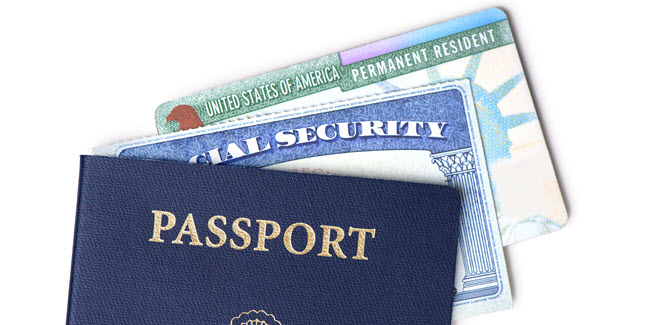What is a Resident Alien?
4 min read
March 04, 2024
March 04, 2024
At a glance
What is a resident alien? Find out the definition and see how it may affect your tax return with help from the tax experts at H&R Block.

A resident alien is someone who is a U.S. resident but not an American citizen. A resident alien is often also called a permanent resident or lawful permanent resident. This means that they are considered an immigrant who is legally and lawfully recorded as a U.S. resident.
So, if you’re a citizen of another country and you live and work in the United States, you may qualify as a resident alien.
Who is considered a resident alien?
As explained above, you are a resident alien if you are a permanent resident of the United States but do not have citizenship. According to the United States Citizenship and Immigration Services there are three types of resident aliens:
- Permanent resident: You have been given the legal and lawful right to live in the U.S.
- Conditional resident: If you have applied for residency, usually based on marriage or you’re working under the golden visa process, you will receive a two-year green card.
- Returning resident: You are a returning resident if you have been outside the U.S. and are returning. You must apply for re-admission if you’ve been outside the U.S. for more than 180 days.
There are two different ways to qualify as a resident alien in the U.S.:
- You pass the Green Card test
- You pass the substantial presence test
The green card test
For the green card test, you’re considered a resident alien if you are legally living permanently in the United States as an immigrant. You have this status if you have an alien registration card, (known by you and I as a green card). You need to either currently have a green card or have had one in the previous calendar year.
Resident aliens and the substantial presence test
The substantial presence test is pretty much what it sounds like: a test to determine if you’ve spent enough time in the United States to be considered a resident alien. You pass the test if you were physically present in the U.S. at least 183 days over three years, which would include a minimum of 31 days during the current year. This includes:
- All the days you were present in the current year
- 1/3 of the days you were present in the first year before the current year
- 1/6 of the days you were present in the second year before the current year
Resident alien vs nonresident alien: What’s the difference?
If you don’t qualify as a resident alien, you might be considered a nonresident alien. The definition of a nonresident alien is someone who’s legally in the U.S. for a short time or who doesn’t have a green card. The main difference between the two is the paperwork and what income is taxed.
For tax purposes, there are some important differences between resident and nonresident aliens. Your tax obligation as a resident alien in the U.S. is that you report and owe taxes on your entire income (regardless where it was earned). This income is reported using IRS Form 1040. On the other hand, the non-resident alien tax rate only applies to taxes on the income from U.S. sources. You can report domestic income on IRS Form 1040NR or 1040NR-EZ.
Another difference is that, when it comes to tax filing, resident aliens can take advantage of foreign tax credits, while nonresident aliens cannot.
In some cases, you can still be considered a nonresident alien even if you meet the substantial presence test. To qualify, you must:
- Hold certain visas
- Have a closer connection to a foreign country than to the United States.
Dual status aliens
In some cases, you can be considered both a resident and a nonresident alien, known as a dual status alien. These cases usually happen the year you arrive or depart from the U.S.
Resident alien tax implications in the U.S.
A common question our tax advisors get is “what taxes do resident aliens have to pay?” Good question!
All resident aliens need to pay U.S. taxes. Just like a U.S. citizen, you need to report all income, regardless if you earned it in the U.S. or abroad. This includes:
- Interest
- Dividends
- Wages or any other compensation for your services/products
- Income from rental properties
- Royalties
- Other income you receive
If you’re an alien and you leave the U.S., you must get a certificate of compliance that proves you’ve paid your U.S. taxes. If you don’t, you must file and pay at your point of departure. Before you leave, be sure to download or take a look at Form 1040-C or Form 2063 from the Internal Revenue Service to find out what you need to report.
Need tax help as a resident alien? Trust the experts at H&R Block
Have any more questions about resident alien status? We are here to help. Get started with virtual Expat Tax Preparation from H&R Block today.
Was this article helpful?
Recommended articles
See what expats have to say about their experience with us.

No one offers more ways to get tax help than H&R Block.
Easy online filing designed for expats. Experienced experts if you need them. Get your taxes done in the way that’s right
for you.







